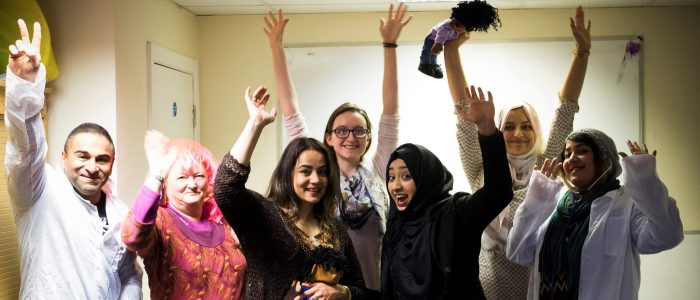Translating for Mum and Dad

Last week, I was listening to Translating for Mum and Dad on BBC Radio 4. It was a very interesting programme; Dr Humera Iqbal from UCL explores some of the experiences of the thousands of children and young people in the UK who act as translators for their parents who find it difficult to communicate in English.
As anyone can imagine, this situation is far from ideal both for the young people and their families. Some young people end up with an overdeveloped sense of responsibility and sometimes even anxiety, even though it also creates a strong bond between the children and their parents.
I have every sympathy with the parents. At school, I was quite good at languages and found them quite easy to learn. However, as an adult, and before I discovered Creative English(!), I found this a lot harder. I have visited Zimbabwe on a number of occasions and have tried hard to learn and speak Shona and Ndebele; but as my Zimbabwean friends will attest, despite carrying around my phrase book and desperately trying to memorise words, apart from a few commonly used phrases, I usually gave up. It was much easier in the short term to just let my friends speak for me, but that meant that I felt much less confident to actually try for myself, and as a result my Shona and Ndebele is still very limited.
Earlier this month, I was listening to Fauzia* talk about her experiences of learning English. When she arrived in the UK, she had already passed written exams in English, but really struggled to have the confidence to speak it and was very shy; a huge block to building relationships in a new community. Happily, she found out about Creative English and started attending classes, and she loved them! She made friends, practised her English, gained new skills, and has grown in leaps and bounds in confidence both with using English but also in herself. I met her when she was being trained as a Creative English volunteer facilitator. She is now confident enough to speak in English to big groups of learners, as well as to total strangers! It has been such a valuable experience, and she is so excited about being able to give back and to help others to learn in the same way that she has. She has also had the confidence to recently start at college, to further her dreams of using her Master’s Degree to become a teacher in the UK.
The radio programme highlighted some of the situations where children translate for parents including: attending school parents’ evenings; going with parents to the doctors, sometimes having to miss school to translate; or having to deal with banks, utility companies and landlords. One 13-year-old had to deal with a landlord who had failed to fix the family’s heating for a year!
One of the things that I love about delivering Creative English is that it helps empower learners to be able to speak in real life situations like these. This is achieved through using drama, puppets and games and lots of laughter! The sessions allow the learners to practise scenarios, including going to the doctors, dealing with landlords and talking with schools.
Where the children need to translate for their parents, family roles change, with parents often becoming dependent on their children. The children become their advocates, acting as the head of the family, dealing with situations beyond their years. Programmes such as Creative English empower the adults to be the parents again and remove the additional concerns from their children at an important time for them as they settle down with their new lives in the UK.
* Name changed.


